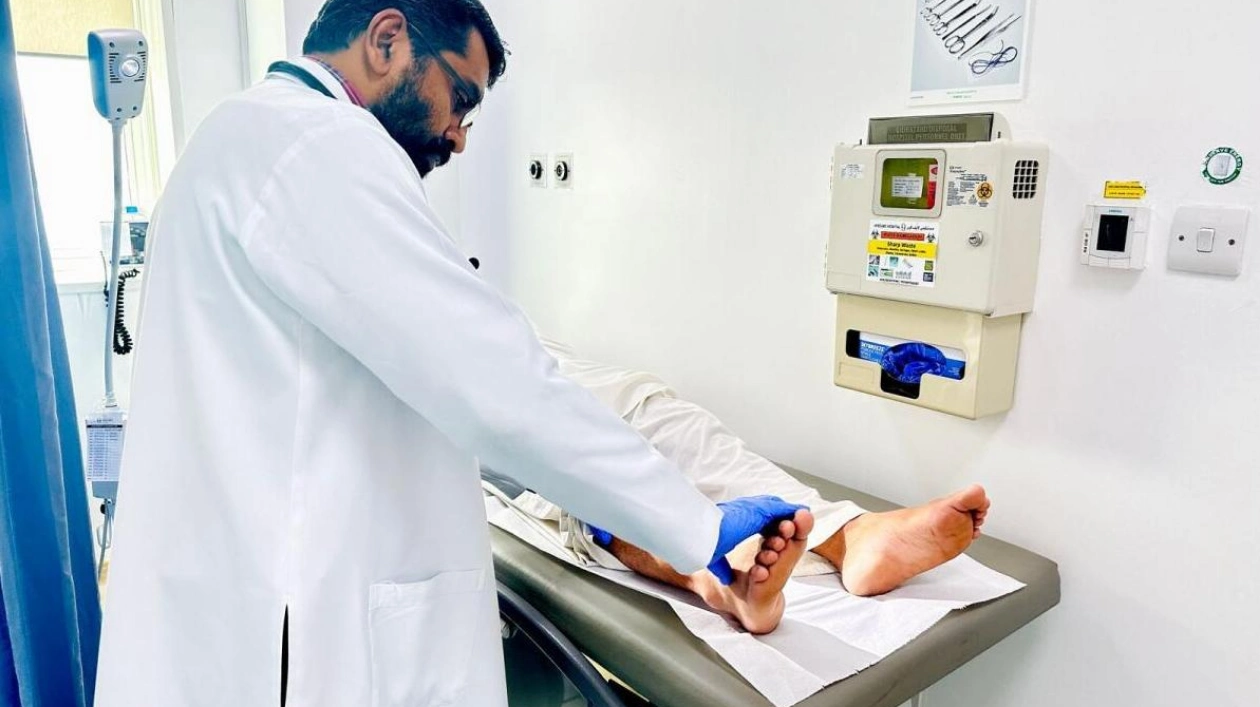After a grueling 20-day battle between life and death, 42-year-old Majeed Muhammad is now experiencing a new chapter in his life. Diagnosed with acute meningococcemia, a critical bloodstream infection, he fought for survival in a hospital bed. Meningococcal disease, first identified in 1805, is feared due to its epidemic spread. In the late 19th century, the idea of serum therapy for bacterial diseases linked to toxins was recognized. This method was independently applied to treat meningococcal disease, marking the first successful therapeutic approach.
Muhammad was admitted to Lifecare Hospital, Musaffah, presenting with symptoms including high fever, dizziness, hypotension, and rapid breathing. His condition deteriorated, affecting multiple organs. He suddenly developed acute kidney failure, acute respiratory distress syndrome, abnormal blood clotting, and gangrene in his toes. Reflecting on his ordeal, Muhammad, an Abu Dhabi resident, described his intense symptoms and fears of not recovering.
Dr. Baiju Faizal, an internal medicine consultant at Lifecare Hospital, noted Muhammad’s unusual condition. Initial tests did not indicate common causes of shock, leading to suspicions of sepsis. The slight purple discoloration on his feet suggested a meningococcal infection. Comprehensive tests confirmed renal failure, high blood lactate, and elevated blood counts. Dr. Seema Oommen, a microbiologist at Burjeel Medical City, confirmed the presence of Neisseria meningitidis, the bacterium causing meningococcemia.
Acute meningococcemia, caused by a Neisseria meningitidis infection, is a complex condition affecting various organs. It has been controlled globally through vaccinations. Muhammad exhibited Disseminated Intravascular Coagulation (DIC), a severe consequence of meningococcemia, leading to both clotting and bleeding. The medical team, including specialists in nephrology, critical care, gastroenterology, pulmonology, and surgery, worked together to treat him.
Despite the complexity, Muhammad recovered under expert care. He was treated with broad-spectrum antibiotics, managed kidney failure through hemodialysis, and received mechanical ventilation for respiratory distress. The infection control team traced his contacts and administered prophylactic antibiotics. Muhammad expressed gratitude for the medical team’s care and his survival, vowing to maintain healthy habits and follow-up with his doctor.
Meningococcemia is less contagious than common colds or flu but poses a higher risk to those in close contact with patients. High-risk individuals, such as those with non-functioning spleens or complement deficiencies, are more susceptible. Close contacts should receive antibiotics, and those in crowded areas or working with the bacterium should consider vaccination. High-risk individuals may need booster doses every five years.






